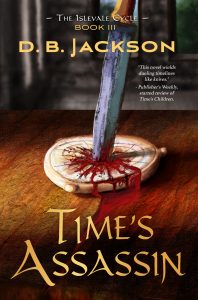I’ll start by assuring you that this is not one of those posts. I’m not going to share my feelings regarding AI generated content and then reveal at the very end of the post that everything you’ve read was actually AI generated. It’s really me. I promise. How can you be sure? Well, the best evidence is this: I’m too cheap to purchase the AI generator I’ll be discussing . . . .
That I would even think it necessary to say as much . . . well, read on.
An email appeared in my inbox this past week. It came from a prominent maker of WordPress plugins and it advertised a new AI content generator for WordPress sites. “Our latest product [is] aimed at enriching your WordPress experience . . . This tool utilizes the potential of artificial intelligence, adding a formidable ally to your writing process.”
Already, I can hear the Skynet airships hovering overhead. [Sorry — Terminator reference.]
I’ll admit, I was horrified. Wanting to know more, I followed the link in the email and was taken to the product page where I could see the generator in action. “Write a blog post about X,” the app is told, and in a second or two content populates the screen. (I should add here that we are guided through the product tour by what is clearly an AI-generated voice. It’s kind of creepy, actually.) The wording produced by the plugin is clean and flowing, free of typos and grammatical errors. In fact, that’s one of the features the developer trumpets. No more typos. No more wording mistakes. God forbid writers should just learn to write and take the time to proofread their work.
The AI generator can also provide snappy titles for its posts as well as summaries of the content, and it can even adapt the tone of the piece to our mood and preference — among the possible choices are “formal,” “informal,” “optimistic,” “humorous” (humorous AI? Really?), “serious,” “skeptical,” “empathetic,” “confident,” “passionate,” and “provocative.” The tour shows the imagined user switching from “formal” to “passionate.” The differences in the resulting text are minimal.
I’m not naïve, and I’m also not blind to the benefits such a generator might bring to, say, a travel enterprise that specializes in tours of various parts of the world. Rather than write separate essays about each region, which could take hours, a webmaster could input the parameters for each essay and complete the work in mere moments. The resulting prose would be safe, error-free, and quite likely good enough for the company’s purposes.
It would also be anodyne, soulless, utterly lacking in anything remotely human.
Reading the text generated in the product tour, I was struck by a few things. First, for now at least, the AI’s vocabulary and writing style are both quite limited. It repeats words and sentence structure so that there is a sameness to each paragraph and the treatment of each new topic. Also — and this is predictable, I suppose — the generated text is as dry as dust. It is long on fact, on the sort of information one might find in an encyclopedia entry, but it lacks anything to which one might connect emotionally. And it also lacks rhetorical flourishes — simile, metaphor, analogy. It is, in short, boring.
“Say goodbye to writer’s block and hello to effortless content creation,” the product tour says, missing the point entirely. I have written about writer’s block before, and the last time I did, I hurt and offended a writer friend whom I care about and admire. I have said in the past that writer’s block doesn’t exist (and I’ll get to what I mean by that in a moment). The fact is, though, this is not true. Writer’s block does exist. It is a debilitating void, an inability to create that can last months, even years at a time. Writers who are afflicted with it, as my friend has been, suffer greatly.
But writer’s block as it is used commonly, as it is used here in this AI generator product tour, is not at all the same. It is the difference between clinical depression and saying one is “depressed” because a favorite sports team lost a close one.
What most people — including the app developer — mean when they speak of writer’s block is the inability to write something in a particular moment. This form of “writer’s block” presupposes that writing is easy, that creating new content should come without effort, without hesitation, without forethought and contemplation. What most call “writer’s block” I call writing. Because writing isn’t easy. Creating new content takes tremendous effort. It is messy and slow and frustrating. It is fits and starts. It is staring out the window for fifteen minutes at a time, wracking one’s brain for that perfect turn of phrase. It is re-writing the same graph six times until it shines just as we want it to.
And that’s what’s wrong with AI generated content. That struggle to create, that wrenching, ugly, glorious process is what infuses our writing with emotion and energy, individuality and the spark of humanity that makes writing and reading joyous. When we take away the work, the messiness, the false starts and numerous rewrites — in other words, when we make writing “effortless” — we also render it gutless and vapid.
Is there a use for AI generated writing? I guess. I mentioned a hypothetical travel business earlier; AI would probably save its owners a bit of time and money. At what cost, though? How much dumbing down is too much? And where does this slippery slope lead? At the risk of sounding idealistic and giving the lie to my early claim that I’m not naïve, I have to ask: Wouldn’t we be better served as a society if we put as much effort into teaching our children to write and think creatively as we do teaching computers to do stuff for us? The answer seems self-evident to me.
Have a great week.









 Recently, I have been reading a biography of Joni Mitchell (a holiday gift from my older daughter), a long-time favorite of mine and, in my opinion, the finest songwriter in the history of rock and roll (more on that shortly). It’s been an interesting read — the author is a bit fawning for my taste, and a bit too eager as well to weave Mitchell’s (admittedly phenomenal) lyrics into his prose. But as is often the case when I read biographies of artists I admire, the book made me think about creativity and the artistic process.
Recently, I have been reading a biography of Joni Mitchell (a holiday gift from my older daughter), a long-time favorite of mine and, in my opinion, the finest songwriter in the history of rock and roll (more on that shortly). It’s been an interesting read — the author is a bit fawning for my taste, and a bit too eager as well to weave Mitchell’s (admittedly phenomenal) lyrics into his prose. But as is often the case when I read biographies of artists I admire, the book made me think about creativity and the artistic process. I’ll preface this discussion with the obvious: I’m old. I’ve been in this business for a long time — it’s been nearly three decades since I signed my first contract. When I got started in the business, publishers were just beginning to expect that writers would maintain websites. Websites! Facebook and Twitter and the rest didn’t even exist. And when we signed contracts, writers could rightfully expect that our publishers would handle the bulk of the necessary publicity, which consisted mainly of taking out ads in journals, sending review copies to print magazines (kids, ask your parents) and other critical venues, setting up newspaper, radio, and television interviews, and arranging signing tours and individual store events.
I’ll preface this discussion with the obvious: I’m old. I’ve been in this business for a long time — it’s been nearly three decades since I signed my first contract. When I got started in the business, publishers were just beginning to expect that writers would maintain websites. Websites! Facebook and Twitter and the rest didn’t even exist. And when we signed contracts, writers could rightfully expect that our publishers would handle the bulk of the necessary publicity, which consisted mainly of taking out ads in journals, sending review copies to print magazines (kids, ask your parents) and other critical venues, setting up newspaper, radio, and television interviews, and arranging signing tours and individual store events. Blogging and social media are extras. Yes, in this day and age, they are important extras. Crucial, some might say. We have to publicize our books, or no one will buy them or read them. But as vital as this part of the job might seem, I would once again turn the previous phrase on its head: We have to publicize in order to be read? Yes, we do. But more important by far is this: We have to write the books in order for any of that publicity to be worth a damn.
Blogging and social media are extras. Yes, in this day and age, they are important extras. Crucial, some might say. We have to publicize our books, or no one will buy them or read them. But as vital as this part of the job might seem, I would once again turn the previous phrase on its head: We have to publicize in order to be read? Yes, we do. But more important by far is this: We have to write the books in order for any of that publicity to be worth a damn. And I did. The book was Invasives, by the way. It contains the best character work I’ve ever done, and that is no coincidence.
And I did. The book was Invasives, by the way. It contains the best character work I’ve ever done, and that is no coincidence. What about you? I’m not merely asking what you wish to accomplish, though obviously that’s part of the equation. I’m asking as well what you care about. Sure, maybe you want to be published — or at least contracted — by year’s end. That’s a laudable goal. But what project will get you there? What story is burning brightest inside you? What work will bring you joy? What project is most likely to tap into your greatest creative passion? That ought to be part of the equation as well.
What about you? I’m not merely asking what you wish to accomplish, though obviously that’s part of the equation. I’m asking as well what you care about. Sure, maybe you want to be published — or at least contracted — by year’s end. That’s a laudable goal. But what project will get you there? What story is burning brightest inside you? What work will bring you joy? What project is most likely to tap into your greatest creative passion? That ought to be part of the equation as well.

 I write about my girls a lot in this blog. Needless to say, I love them tons and tons, and I savor every opportunity to be with them, to talk to them by phone, even to exchange silly texts in the middle of a busy work week. I talked to Alex just the other night — she called out of the blue, which was lovely. No agenda. No big news good or bad. Just a chance to chat. And Erin was home this weekend for a quick visit. She needed a little Mom and Dad Time, and we were all for that. We had a wonderful time with her.
I write about my girls a lot in this blog. Needless to say, I love them tons and tons, and I savor every opportunity to be with them, to talk to them by phone, even to exchange silly texts in the middle of a busy work week. I talked to Alex just the other night — she called out of the blue, which was lovely. No agenda. No big news good or bad. Just a chance to chat. And Erin was home this weekend for a quick visit. She needed a little Mom and Dad Time, and we were all for that. We had a wonderful time with her.

